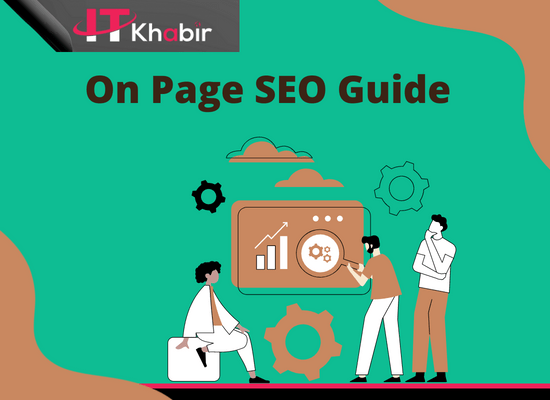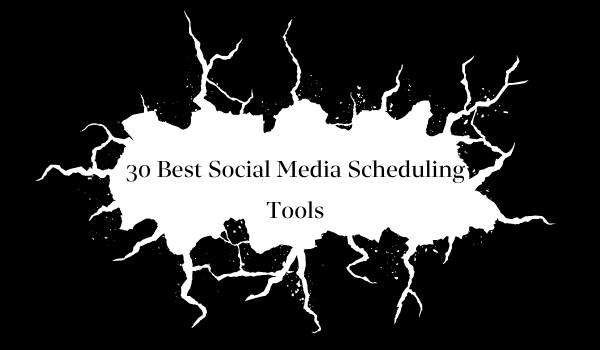To improve a website’s position in search engine results and increase organic traffic, on-page SEO is practiced. Enhancing a website’s visibility and ranking in search engine results pages is the aim of on-page SEO (SERPs).
There are a number of factors that impact the ranking of a website in SERPs. Some of these factors are within the control of the website owner, such as the quality of the website content and the structure of the website. Other ranking factors, such as the age of the domain and the number of inbound links, are beyond the control of the website owner.
The goal of this guide is to provide website owners with a framework for on-page SEO that will help their website rank higher in SERPs. This guide covers the basics of on-page SEO, including keyword research, title tags, meta tags, and content optimization.
- Watch now Digital product lifetime deal 97% Off
On Page SEO Guide – 30 Actionable Tips to Boost Your Rankings
If you’re looking for ways to boost your rankings and get more traffic from Google, you’re in the right place.
In this post, we’ll share 30 actionable tips that you can use to improve your rankings and get more traffic from Google.
1. Use keyword-rich titles.
One of the best ways to improve your rankings is to make sure your titles are keyword-rich. including your target keyword in your title will help you rank higher in Google.
2. Optimize your meta tags.
Your meta tags are one of the most important elements of your website when it comes to ranking in Google. Make sure you’re including your target keywords in your meta tags to improve your chances of ranking higher.
3. Use keyword-rich descriptions.
Just like your title, your website’s description is another important element when it comes to ranking in Google. Including your target keyword in your description will help you rank higher.
4. Use keyword-rich headlines.
Your headlines are just as important as your title and description when it comes to ranking in Google. Make sure your headlines contain your target keyword to improve your chances of ranking higher.
5. Optimize your images.
Including keywords in your image file names and alt text can help you rank higher in Google image search.
6. Use keyword-rich content.
Of course, one of the most important things you can do to improve your rankings is to create keyword-rich content. Make sure your target keyword is included in your content to help you rank higher.
7. Promote your content.
Getting other websites to link to your content can help you rank higher in Google. Promote your content on social media and other websites to get more links.
8. Use Google Search Console.
Google Search Console is a free tool that allows you to see how your website is performing in Google search results. Using Search Console can help you identify and fix errors on your website that could be holding you back from ranking higher.
9. Use Google Analytics.
Google Analytics is another free tool from Google that can be helpful in tracking your website’s traffic and performance. Using Analytics can help you identify which pages on your website are performing well and which could use some improvement.
10. Conduct keyword research.
Before you can optimize your website for a certain keyword, you need to know what keywords to target. Conducting keyword research can help you identify the best keywords to target for your website.
11. Use long-tail keywords.
Long-tail keywords are keywords that are more specific and usually longer than traditional keywords. Targeting long-tail keywords can be a great way to rank higher in Google, especially if you’re just starting out.
12. Use LSI keywords.
LSI keywords are related keywords that help Google understand the context of your content. Using LSI keywords in your content can help you rank higher in Google.
13. Optimize your website for mobile.
More and more people are using their mobile devices to search the internet. Optimizing your website for mobile can help you rank higher in mobile search results.
14. Make sure your website is fast.
Google has stated that website speed is a ranking factor. This means that if your website is slow, it could be holding you back from ranking higher.
15. Use responsive design.
Responsive design is a type of design that makes your website look good on all devices, from desktop computers to mobile phones. Using responsive design can help you rank higher in Google.
16. Use structured data.
Structured data is a type of code that helps Google understand the content on your website. Using structured data can help you rank higher in Google.
17. Optimize your website for voice search.
More and more people are using voice search to find information online. Optimizing your website for voice search can help you rank higher in voice search results.
18. Create great content.
One of the best ways to improve your rankings is to create high-quality content that is relevant to your target keyword. Creating great content will not only help you rank higher, but it will also help you get more traffic from Google.
19. Publish fresh content.
Google loves fresh content. Publishing new content on a regular basis can help you rank higher and get more traffic from Google.
20. Increase your content length.
Google has stated that longer content tends to rank higher than shorter content. If you want to improve your rankings, try increasing the length of your content.
21. Use social signals.
Google has said that social signals are a ranking factor. This means that if your content is shared on social media, it could help you rank higher.
22. Get more backlinks.
One of the most important ranking factors is backlinks. The more backlinks you have, the higher you’ll rank. Try to get high-quality backlinks from relevant websites.
23. Optimize your website for Google’s featured snippets.
Google’s featured snippets are a great way to get more traffic from Google. If you can optimize your website to appear in featured snippets, you’ll be more likely to get clicks and traffic.
24. Use Google AdWords.
Google AdWords is a great way to get more traffic to your website. You can use AdWords to create ads that appear in Google search results.
25. Use Google My Business.
Google My Business is a free listing that allows you to appear in Google Maps and Google search results. Optimizing your listing can help you rank higher and get more traffic.
26. Use Google+
Google+ is a social network that is owned by Google. Creating a profile and sharing your content on Google+ can help you rank higher.
27. Use YouTube.
YouTube is a great way to get more traffic to your website. You can create videos and optimize them for SEO to help you rank higher in YouTube search results.
28. Use Google Images.
Google Images is a great way to get more traffic to your website. You can optimize your images for SEO to help you rank higher in Google Images search results.
29. Use Google News.
If you want your website to appear in Google News, you need to optimize your website for Google News. This can help you get more traffic from Google.
30. Use Google Trends.
Google Trends is a great way to see what people are searching for on Google. You can use Trends to see which keywords are trending and optimize your website for those keywords.
If you want to improve your rankings and get more traffic from Google, try using these 30 tips.
What are the on page SEO checklist?
When it comes to on page SEO, there are a few key things you need to check off your list in order to ensure your website is optimised for search engines. Here is a quick checklist of on page SEO factors to consider:
- 1. Title tags – Make sure your title tags are relevant and optimised for your target keywords.
- 2. Meta descriptions – Write compelling meta descriptions that will entice users to click through to your website.
- 3. Header tags – Use header tags to break up your content and make it easier for users to scan and read.
- 4. Alt tags – Use alt tags to describe your images and videos for better accessibility and indexing.
- 5. Keyword density – Use target keywords throughout your content, but don’t stuff your keywords!
- 6. Internal linking – Link to other relevant pages on your website to help search engines crawl your site.
- 7. External linking – Link to high quality websites to improve your link popularity.
- 8. Sitemaps – Create a sitemap and submit it to search engines to help them index your website.
- 9. Robots.txt – Use a robots.txt file to control how search engines crawl and index your website.
- 10. Social media – Promote your website and content on social media for added exposure.
By following these on page SEO tips, you can help improve your website’s visibility and ranking in search engine results pages.
How do I get on page SEO right from day one?
If you’re starting a new website or blog, you want to make sure you’re doing everything you can to optimize it for search engine ranking from the very beginning. Here are some tips to help you get on page SEO right from day one:
- 1. Do your keyword research. This is the first and most important step in optimizing your site for search engines. You need to identify the keywords and phrases that potential customers are using to search for businesses like yours.
- 2. Use those keywords throughout your site. Once you’ve identified the right keywords, use them in your site’s title, headings, and content. But don’t overdo it – using too many keywords can actually hurt your ranking.
- 3. Optimize your images. Whenever you upload a photo to your site, make sure to include keywords in the file name and fill out the alternate text field with a brief, keyword-rich description.
- 4. Add fresh content regularly. Search engines love sites that are constantly updating with new, relevant content. So make sure to add new blog posts, articles, or other types of content on a regular basis.
- 5. Promote your site. Getting other websites to link to yours is a great way to improve your search engine ranking. You can promote your site by submitting it to directories, writing guest blog posts, or participating in online forums.
By following these tips, you can ensure that your new site is well-optimized for search engines and has a better chance of ranking high in search results.
Related Articles
- Get a Glorify Lifetime Deal – Ultimate Design powerful Tool
- Event Management Plugin – Manage Your Events Easily
- Get a Butter Lifetime Deal – Best meetings tools Save Up to 97%.
On Page SEO Guide : Final Thought
This guide has provided you with all the information you need to optimize your website for on-page SEO. By following the tips and strategies in this guide, you can ensure that your website is search engine friendly and will rank higher in search engine results pages. Implementing on-page SEO will help you attract more visitors to your website, which can lead to more sales and conversions.
- Watch now Digital product lifetime deal 97% Off

















